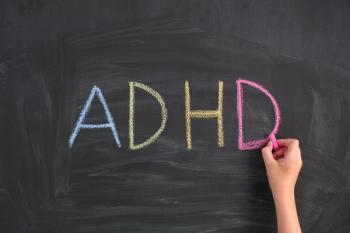
Restricted diet may help reduce ADHD symptoms
A restricted elimination diet may be effective in reducing symptoms of attention-deficit/hyperactivity disorder (ADHD) in children, according to researchers from the Netherlands.
A restricted elimination diet may be effective in reducing symptoms of attention-deficit/hyperactivity disorder (ADHD) in children, according to researchers from the Netherlands.
The beneficial effect of the restricted diet was not related to IgG blood levels, which suggests a nonallergic mechanism to food-induced ADHD.
The study was conducted in 2 phases. In the first phase, 100 children 4 to 8 years old with ADHD were randomized to 5 weeks of a restricted diet consisting of rice, meat, vegetables, pears, water, potatoes, fruits, and wheat or to a control group. Using 4 rating scales or questionnaires to assess ADHD symptoms and oppositional defiant disorder, 32 of the 50 children (64%) randomized to the restricted diet had significant improvement in ADHD scores.
In the second phase, 30 children who responded to the restricted diet had double-blind crossover food challenges in which each of 3 high-IgG or 3 low-IgG foods were reintroduced into their diets. Nineteen of the 30 children (63%) experienced behavioral relapse after the challenge, regardless of whether they were challenged with high- or low-IgG foods. “These results suggest that use of IgG blood tests to identify which foods are triggering ADHD is not advisable,” the researchers write.
They recommend considering dietary intervention in all children with ADHD, “provided parents are willing to follow a diagnostic restricted elimination diet for a 5-week period, and provided expert supervision is available.”
In a companion commentary piece, Jaswinder Kaur Ghuman, MD, director of the Infant and Preschool Program in the Division of Child and Adolescent Psychiatry at the University of Arizona, Tucson, advices educating parents of children with ADHD about potential sensitivity to common foods and additives. If a dietary elimination strategy is chosen, she suggests a 2- to 5-week trial, adding back restricted foods weekly (1 food component at a time) until the problem foods are identified.
Pelsser LM, Frankena K, Toorman J, et al. Effects of a restricted elimination diet on the behaviour of children with attention-deficit hyperactivity disorder (INCA) study): a randomised controlled trial. Lancet. 2011;377(9764):494-503.
Newsletter
Access practical, evidence-based guidance to support better care for our youngest patients. Join our email list for the latest clinical updates.






